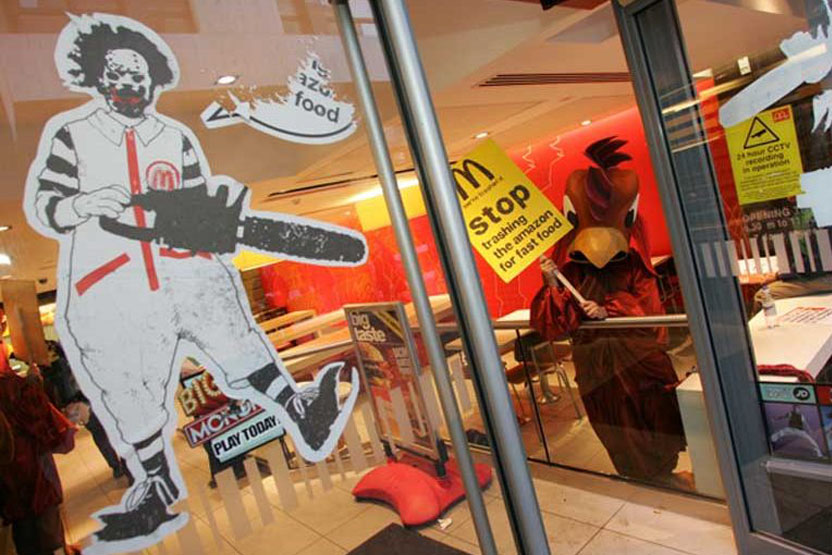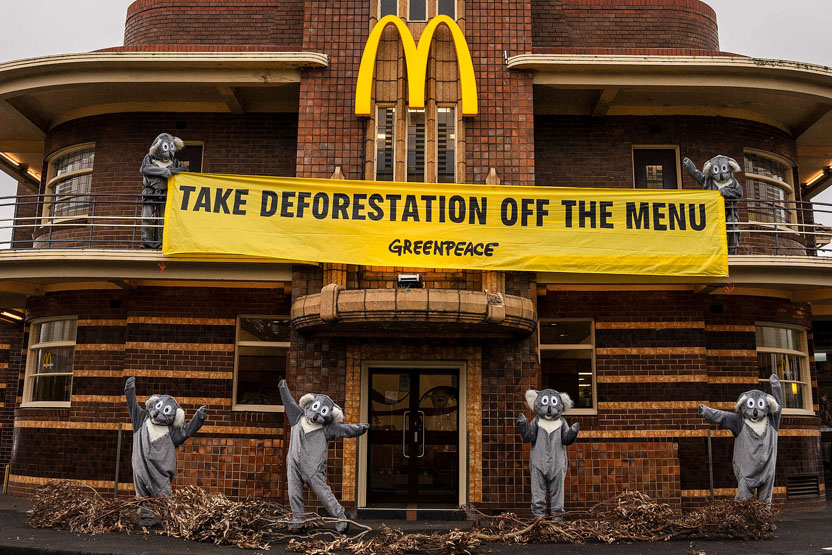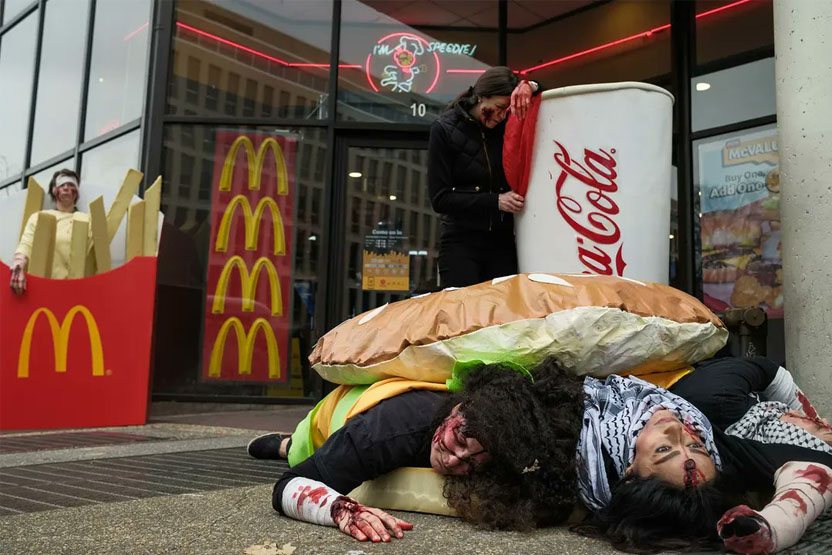World Junk Food Day: behind McDonald's golden arches lies a darker empire of deforestation, war profiteering, and ethical indifference.

Behind every McDonald’s burger savored around the world lies a stark, often invisible reality—a trail of deforestation, environmental degradation, exploitation of human beings, and complicity in political injustice. As the largest fast food chain on the planet, McDonald’s does not merely serve meals; it feeds a global system of ecological devastation and human suffering. While fast food is often criticized for its impact on health, this is only the visible tip of a much darker iceberg. Today, fast food—symbolized by McDonald's golden arches—has become emblematic of a system that plunders natural resources, exploits vulnerable communities, and turns a blind eye to basic principles of justice and human rights. In this article, we examine the intertwined layers of McDonald’s environmental irresponsibility and its controversial political involvements, questioning the moral price of its corporate empire.
McDonald’s Appetite for the Amazon
One of the most alarming aspects of McDonald’s global footprint is its role in accelerating deforestation, particularly in the Amazon rainforest, the lungs of our planet. Despite public commitments and polished sustainability reports, investigative research by environmental groups such as Mighty Earth and Rainforest Foundation Norway has repeatedly highlighted McDonald’s indirect ties to suppliers involved in illegal deforestation. In their 2023 report, Still Eating Up the Amazon, Mighty Earth documented how beef and soy sourced for McDonald’s supply chain are linked to destructive land clearing in Brazil—activities that not only decimate biodiversity but also release massive amounts of carbon dioxide into the atmosphere, contributing significantly to climate change. Moreover, these activities often encroach on the territories of indigenous communities, displacing populations and violating their ancestral rights. McDonald’s, while hiding behind subcontractors and global supply networks, cannot absolve itself of responsibility for fueling a demand that perpetuates this environmental crime.

Greenpeace protested at a Melbourne McDonald’s, urging it to drop deforested beef by 2025. Activists dressed as koalas held a banner reading “Take Deforestation off the Menu.”
Complicity in Occupation and War
However, McDonald’s controversial record does not stop at environmental issues. In the wake of Israel’s devastating military operations in Gaza since October 2023, McDonald’s franchises in Israel openly provided free meals to Israeli soldiers—an act documented by multiple independent media outlets, including Middle East Monitor and Mondoweiss. This was not an isolated initiative by a local franchisee but part of a larger pattern of corporate indifference toward human rights violations. Furthermore, several franchises associated with McDonald’s have been reported by watchdog groups such as Who Profits for their involvement in illegal Israeli settlements in the occupied Palestinian territories—a direct breach of international law as reaffirmed by United Nations resolutions and human rights organizations like Amnesty International. These actions have ignited global outrage and fueled boycott movements that hold McDonald’s accountable not just for its environmental footprint but also for its role—voluntary or complicit—in systems of oppression and injustice.

Humanitarian activists gathered at the U.S. Capitol, McDonald's, and Starbucks to stage a boycott demonstration, protesting companies they say are complicit in supporting the occupation's atrocities in Gaza. (Feb 5, 2025)
The Twin Pillars of Profit and Abuse
What emerges is a disturbing pattern in which McDonald’s business model thrives on both ecological and human exploitation. The same ruthless logic that drives the overconsumption of cheap meat, with its attendant environmental costs, seamlessly extends to corporate alliances with oppressive regimes or controversial political entities. This complicity is not coincidental—it is structural. In a capitalist system where profit is paramount, corporations like McDonald’s often prioritize market share and cost reduction over environmental sustainability and human rights. This convergence of ecological irresponsibility and political complicity should force consumers to rethink the power dynamics behind the food they consume. Every dollar spent at McDonald’s is not merely a transaction for a meal—it is a tacit endorsement of a corporate ethos that treats both nature and human dignity as expendable.
Towards an Ethical Consumer Awareness?
In an age when information is readily accessible, ignorance can no longer serve as an excuse. Consumers bear a critical responsibility in challenging the status quo by making conscious choices that reflect ethical considerations. Supporting local businesses committed to sustainable practices, participating in global boycott campaigns against companies complicit in human rights abuses, and demanding corporate transparency are no longer optional—they are moral imperatives. On this World Fast Food Day, rather than celebrating convenience food culture, it is time to reflect on its hidden costs and to take a stand against the brands that profit from the destruction of our environment and the trampling of human rights. Because behind every seemingly innocent bite, there may be a chain of exploitation too dark to ignore.




Comment
Reply